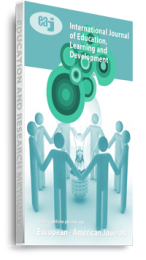The study was designed to determine the effects of classwide and reciprocal peer tutoring strategies on students’ mathematical problem-solving achievement in electricity concepts in physics. The design of the study was experimental; specifically the randomized post-test only control group design. The sample consisted of one hundred and twenty senior secondary two (SS2) physics students drawn using simple random sampling technique from three out of the eight public secondary schools in th e study area and randomly assigned as the two experimental groups and one control group respectively. Three research questions and three hypotheses guided the study. Treatment consisted of teaching electricity concepts to the experimental groups using the classwide peer tutoring and reciprocal peer tutoring strategies while the control group was taught using a format not structured after the above strategies. Electricity problem solving test in physics (EPTP) was the instrument used for data collection. A One-way Analysis of Variance (ANOVA) was used to test the hypotheses at 0.05 level of significance. Results revealed a significant difference in the mathematical problem-solving achievement of students among the groups. Post hoc multiple comparison using LSD t-tests was carried out, showing that physics students exposed to classwide peer tutoring strategy performed significantly better than students that had been exposed to reciprocal peer tutoring strategy and control group strategy. Based on the findings, some recommendations were made.
Keywords: Peer tutoring, classwide peer tutoring (CWPT), reciprocal peer tutoring (RPT)., tutee, tutor

